|
By Ron Paul
Last week’s announcement of a record-breaking US aid package for Israel underscores how dangerously foolish and out-of-touch is our interventionist foreign policy. Over the next ten years, the US taxpayer will be forced to give Israel some $38 billion dollars in military aid. It is money we cannot afford going to a country that needs no assistance to maintain its status as the most powerful military in the Middle East. All US foreign aid is immoral and counterproductive. As I have often said, it is money taken from poor people in the US and sent to rich people overseas. That is because US assistance money goes to foreign governments to hand out as they see fit. Often that assistance is stolen outright or it goes to the politically connected in the recipient country. Just as bad is the fact that much of what we call “foreign aid” is actually welfare for the wealthy here at home. The aid package to Israel is a very good example. According to the agreement, this $38 billion will all go to US weapons manufacturers. So the real beneficiaries are not the American people, and not even Israeli citizens. The real beneficiaries are the US military-industrial complex. Perhaps the money won’t even leave Washington – it may simply go across town, from the Fed to the Beltway bomb-makers. While even US government aid to desperately poor countries should be opposed on moral and practical grounds, it is even harder to understand US aid to relatively rich countries. At a nominal per capita GDP of over $35,000, Israel is richer than Japan, Italy, and South Korea. Not long ago Business Insider published a report by the Institute for the Study of War showing that the Israel is the most powerful military force in the Middle East. We know they have hundreds of nuclear weapons, a sophisticated air force, drones, and even nuclear weapons-equipped submarines. So why is the US giving a rich and incredibly well-armed country a record amount of military aid? Part of it is that the US government believes it can coerce Israel to do Washington’s bidding in the Middle East. History shows that this is a foolish pipe dream. If anything, US aid subsidizes Israeli human rights abuses in Gaza and elsewhere. Another reason is a very powerful lobby in Washington, AIPAC, that pressures Members of Congress to focus on Israel’s interests instead of US interests. Members of Congress should look at our economy, with effectively zero interest rates, an anemic non-recovery from the 2008 crash, historically low participation in the work force, and inflation eroding the value of the dollar and conclude that this might not be the best time to start handing out billions of dollars in foreign aid. Unfortunately most Members of Congress find it impossible to say no to special interest groups like AIPAC. Here’s a better aid package for Israel: free trade, travel, friendly relations, and no entangling alliances. Israel should be free to pursue its national interests and we should be free to pursue ours. If individual Americans feel compelled to provide assistance to Israel or any other country or cause overseas they should be allowed. But the rest of us should not be forced to do so. Trade, not aid. By Chris Rossini The Ron Paul Institute for Peace & Prosperity held its very first conference on Sept. 10th in Washington DC. The event took place in front of a sold out and standing-room-only crowd of individuals looking for an alternative to the war machine that the U.S. government has become. C-SPAN was there to cover it all, and the videos have been made available for everyone to see. Please enjoy them below! Part 1Speakers Include:
Part 2Speakers Include:
Part 3Speakers Include:
As Hillary Clinton calls millions of Americans "irredeemable" and "deplorable," Ron Paul explains why those terms apply to American politics itself. Gang warfare and a sprawling government enforcer wasn't supposed to be the fate of the "land of the free." There is a better way to live. Don't miss today's Myth-Busters!
By Simon Black “Sir. SIR! This your bag,” the TSA agent barked at me last week, more as a statement than a question. “It is.” “Are you carrying any liquids?” I knew immediately; I had forgotten about the bottle of water that I had shoved in my briefcase before checking out of my hotel. They opened my bag and confiscated the water bottle immediately with an extra harrumph to make sure I knew that I had wasted their time. Yeah, I get it. I broke the rule. But it’s such a ridiculous rule to begin with. Are we really supposed to pretend that Miami International Airport is any safer because there’s a brand new, unopened Dasani bottle in the TSA wastebin? You may recall how Istanbul’s Ataturk Airport was attacked on June 28th by men armed with automatic weapons and explosives. Ataturk was already one of the most security-conscious airports in the world– you actually have to go through a security checkpoint just to enter the building, followed by a second security checkpoint on your way to the gate. And yet, despite all of this extra security, 41 people were killed and hundreds more wounded in an attack that shows just how ineffective airport security really is. Airport security isn’t real security. It’s merely the illusion of security– a bunch of busybodies in uniforms enforcing pointless rules to make people believe that they’re safer. Candidly, our financial system has borrowed the same principle. There’s no real safety in our financial system– merely the illusion of safety. Leading up to the 2008 financial crisis, most people thought the banks were safe. After all, we’ve been told our entire lives that the banks are rock solid. What could go wrong? This turned out to be an illusion. Banks had loaded up their balance sheets with toxic assets, rendering themselves completely insolvent. They started dropping like flies. Bear Stearns, Lehman Brothers, Merrill Lynch, Washington Mutual, Wachovia… some of the most established banks in the US collapsed. Poof. Ever since then, the banks, the US government, the Federal Reserve, and other financial regulators in the United States have been working to rebuild the illusion of financial safety. Most notably came a bunch of laws and regulations like the Dodd-Frank Wall Street Reform and Consumer Protection Act, signed into law in 2010, designed to make the banks safer… … or at least give the appearance that banks are safer. As you can imagine, these regulations have merely created another illusion of bank safety. Today, former US Treasury Secretary Lawrence Summers published a new paper that slams these regulations for not having made the US banking system any safer: “To our surprise, we find that financial market information provides little support for the view that major institutions are significantly safer than they were before the crisis and some support for the notion that risks have actually increased.” This is important. Most people have handed over their entire life’s savings to financial institutions that are far, far riskier than we are led to believe.
Ask yourself– does it really make sense to keep 100% of your savings in a financial system that goes through great pains to deliberately conceal the truth?
Yesterday US National Security Advisor Susan Rice signed a "memorandum of understanding" committing the US to providing $38 billion in military aid over the next ten years. Philip Giraldi joins today's Liberty Report to break down the agreement and discuss whether it really does, as Rice claims, benefit US security.
By Chris Rossini
Whenever government intrudes into private contracts, it distorts the marketplace. For example, government can create as much unemployment as it wants merely by raising its arbitrary minimum wage. If they raise it to $15/hr, all individuals who are low-skilled and don't have the productivity to earn $15/hr are forcefully unemployed. They are outlawed from the workplace. Government seeks to help the poor, but only succeeds in hurting them even more. The same can be said for when government seeks to provide "paid maternity leave". Once again, in its attempt to supposedly help women, it can only end up hurting them. For example, Donald Trump proposes six-weeks paid leave for women who have a baby. Instantly, such an idea makes women much less attractive to hire from an employers perspective. If you have a choice between a man who won't leave you for two months (with pay) versus a woman who might, which is more attractive? The answer is obvious. Six-weeks of paid leave will harm women that are at child-bearing age compared to those who aren't. Women who tell their employers they can't, won't, or are too old to have children will have an edge, courtesy of a goofy government law. What's so magical about six weeks anyway? Did Trump throw a dart at a dartboard to come up with it? Why the one-size-fits-all solution? America is a nation of 300+ unique individuals. One-size-fits-all can be applied to machines and robots, not humans. Six weeks is as arbitrary as a $15/hr. minimum wage. The higher that you raise it, the more people that you hurt. Can you imagine government someday forcing 9, 12, or 15 weeks of paid maternity leave? They can make women permanently unemployable with their "help" should they be so generous. Each employer and employee has a unique set of circumstances. They should each be free to make their own contracts on their own terms. Employers should freely compete with one another in providing agreeable terms for female employees. Likewise, potential female employees should only agree to contracts that fit their particular circumstance. When government bullies its way into the contract, it can only end up hurting the people it promises to help. It also creates more dependence and more wacky demands from people that look to government for "help". Did you know that there are childless women who want maternity leave too? That's right. Supposedly they're being discriminated against! Why can't they get a paid vacation (courtesy of government) for not having a baby. Government intervention into contracts is a rabbit hole that leads to some pretty scary places. Women need to be liberated from government. The only productive thing that government can do to make everyone's life easier is to reduce taxes across the board. Cut, slash, and abolish taxes everywhere! Doing so will make it much easier for families to plan for having a baby. Men and women could start saving once again. Having a child won't bring instant financial panic. What if we didn't live under the biggest government in the history of the world? What if the cost of maintaining such a monster didn't force the existence of two incomes? Having a baby would be no big deal at all. Government, of course, hates such an idea. Where would the dependency come from?
A new ceasefire in Syria took effect this week. Syria and Russia agreed to not bomb US-backed "moderates" and the US agreed to separate its rebels from al-Qaeda. Will this bring about a political solution to the horrors of the five year war? Or are the underlying issues still being ignored?
By Chris Rossini Are you tired of the exhausting displays of political correctness in America? Can't you just feel the liberty and ability to think freely being squeezed out of society? Did you ever wonder where it all came from? After all, there is nothing more powerful than ideas. How did we get here, and who has been behind it? Well, below you'll find an extremely easy to understand presentation that will open your eyes. Make the time to watch it. You won't regret it: By Ron Paul
Did you know that you can listen to the Ron Paul Liberty Report in your car, at the gym, or anytime that you're on the go? We just topped 1,000,000 podcast listens! Be sure to subscribe for your daily dose of liberty. Find the show on iTunes here. |
Archives
April 2024
|

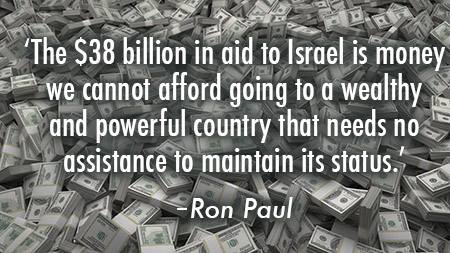

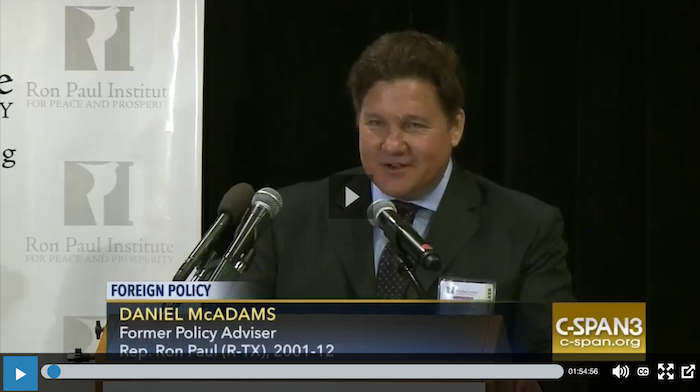
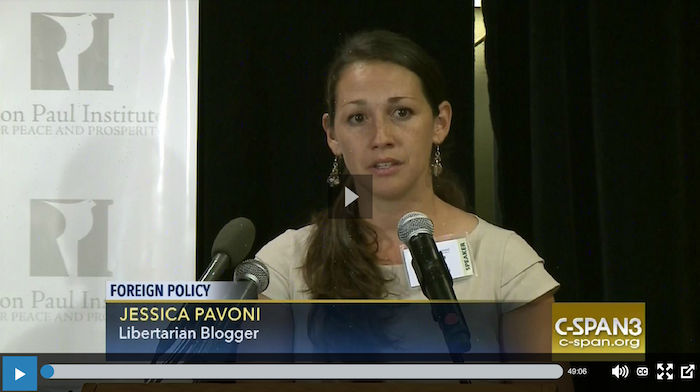
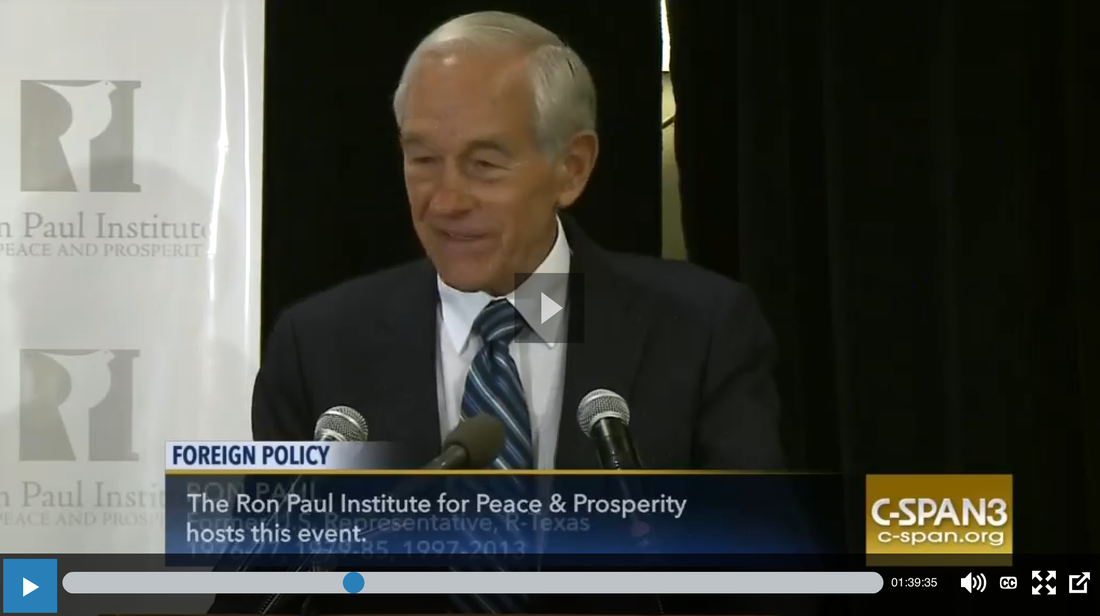

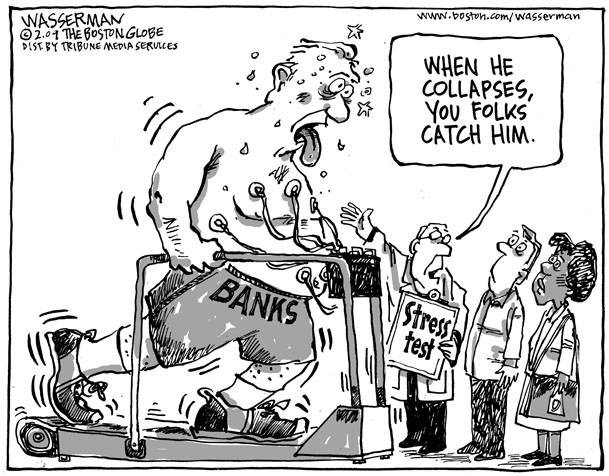


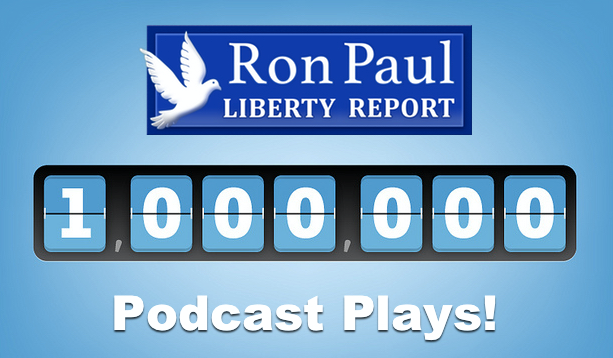
 RSS Feed
RSS Feed



